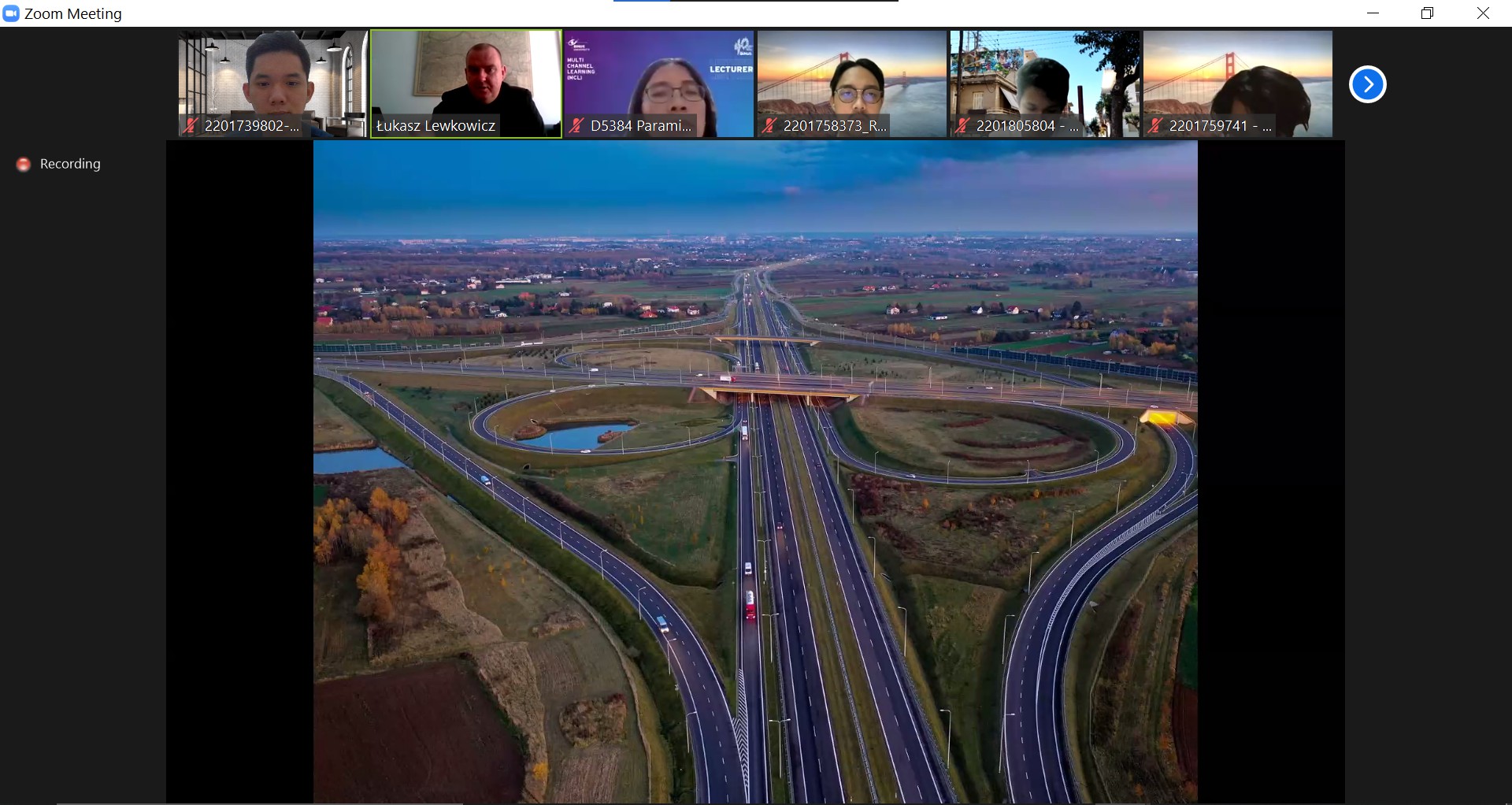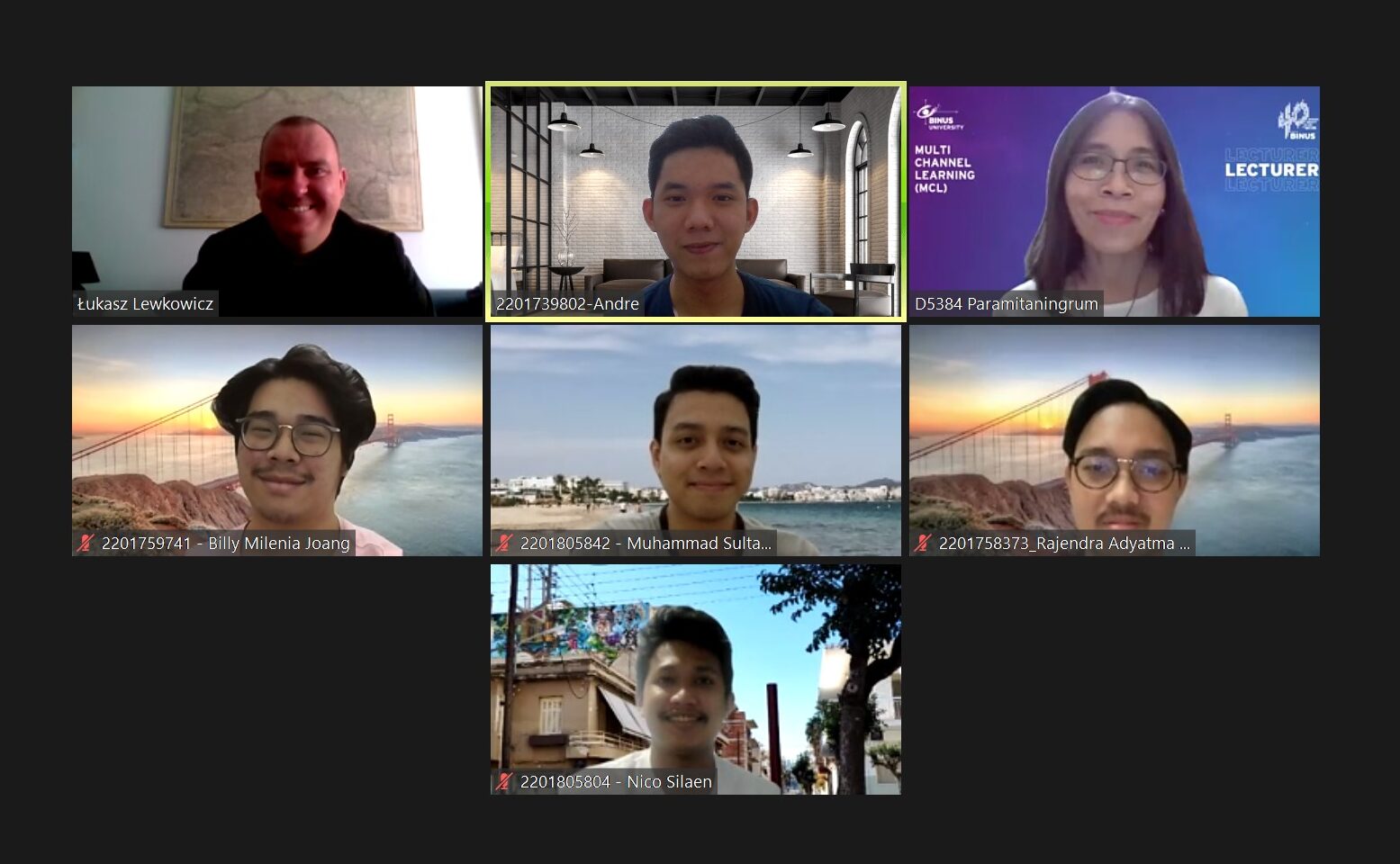Guest Lecture on Enlargement and the Definition of European Identity: Problems and Prospect on CEE Countries
On Wednesday, 3rd June 2021, the Department of International Relations at Binus University held a guest lecture as a part of the EU and European Integration course. Taking “Enlargement and the Definition of European Identity: Problems and Prospect on CEE Countries” as the theme, the guest lecture was delivered by Łukasz Lewkowicz, Ph.D. from the Institute of Political Science and Administration at Maria Curie Skłodowska University in Poland. It was held virtually via Zoom for two hours and attended by International Relations Global Class students who take the course this semester.
Lewkowicz began the guest lecture by briefly defining Central European borders, divided from several measurements, including historical, cultural, economic, and political backgrounds. From these diverse border definitions of Central Europe, it can be inferred that the above-mentioned factors are quite distinct to Western and Eastern Europe. Hence, aligned with his research concentration, Lewkowicz explained sub-regional cooperation in Central Europe as a part of development in their respective areas.
The emergence of this Central European sub-regional cooperation reflects the democratization phenomenon in the area, following the collapse of the Soviet Union. As Central European countries are heading toward democracy, Lewkowicz illustrated the establishment of the Visegrad Group as one of the prominent examples. Consisting of four countries, including Czech Republic, Hungary, Poland, and Slovakia, the group aims to cooperate in the military, cultural, economic, and energy matters, as well as to strive for European Integration.
This motivation leads the group to draw on its four strategic decisions which are building independent and democratic states and market economy, striving for integration with the EU, dismantling structures of the Warsaw Pact, and disassembling the Council for Mutual Economic Assistance. Deriving from these goals, Lewkowicz revealed the group’s successful attempt in integrating itself not only with the EU but also NATO. Nevertheless, as Visegrad Group has integrated with the EU, Lewkowicz thinks that there is an urgency for the cooperation to reconfigure its goals. He also questions the future of the group whether institutionalism is rather necessary for further cooperation as it has become cohesive.
Lewkowicz continued the lecture by giving another example of Central European cooperation, namely the Three Seas Initiative (TSI). As the President of Poland, Andrzej Duda stated “We want to measure the effects of the Three Seas Initiative not by the number of meetings or signed declarations, but by kilometers of roads built, modernized gas pipelines or amounts spent on urgent investments” the regional cooperation’s motives lie within economic initiatives of 12 EU countries located in Adriatic, Baltic, and Black seas. Lewkowicz highlighted three main strategic projects in an effort to strengthen regional cohesion which involves the development of energy, transportation, digital communications infrastructures. He exemplified several establishments of highway projects that connect these Central European countries.
However, as typical of any regional cooperation, TSI faced many constraints one of which is the Brexit and migration crises. It got more enticing as he mentioned Russia’s neo-imperial policy plays a prominent role as a constraint for the cooperation. He believed that these issues might hinder the development of infrastructures in which TSI has projected. Despite being merely an economic project, Lewkowicz argues that a cohesion effort for this initiative is deemed essential since it has generated fruitful outcomes. He also suggested the involvement of Eastern European and Western Balkan countries in TSI for further development.
In the end, the guest lecture was closed by a question-and-answer session which led to discussions on the future of Central European sub-regional cooperation and the probable partnership with Asian countries including Indonesia. Overall, it was an informative guest lecture session in discovering other European cooperation, specifically in Central Europe since the EU’s enlargement efforts in South and Eastern European areas.





